After 25 Years, 'The Virgin Suicides' Is Still Influencing Artists Like Me
To coincide with the Sofia Coppola film's anniversary, Mia Berrin from the indie band Pom Pom Squad reflects on what it's meant to her artistic journey.
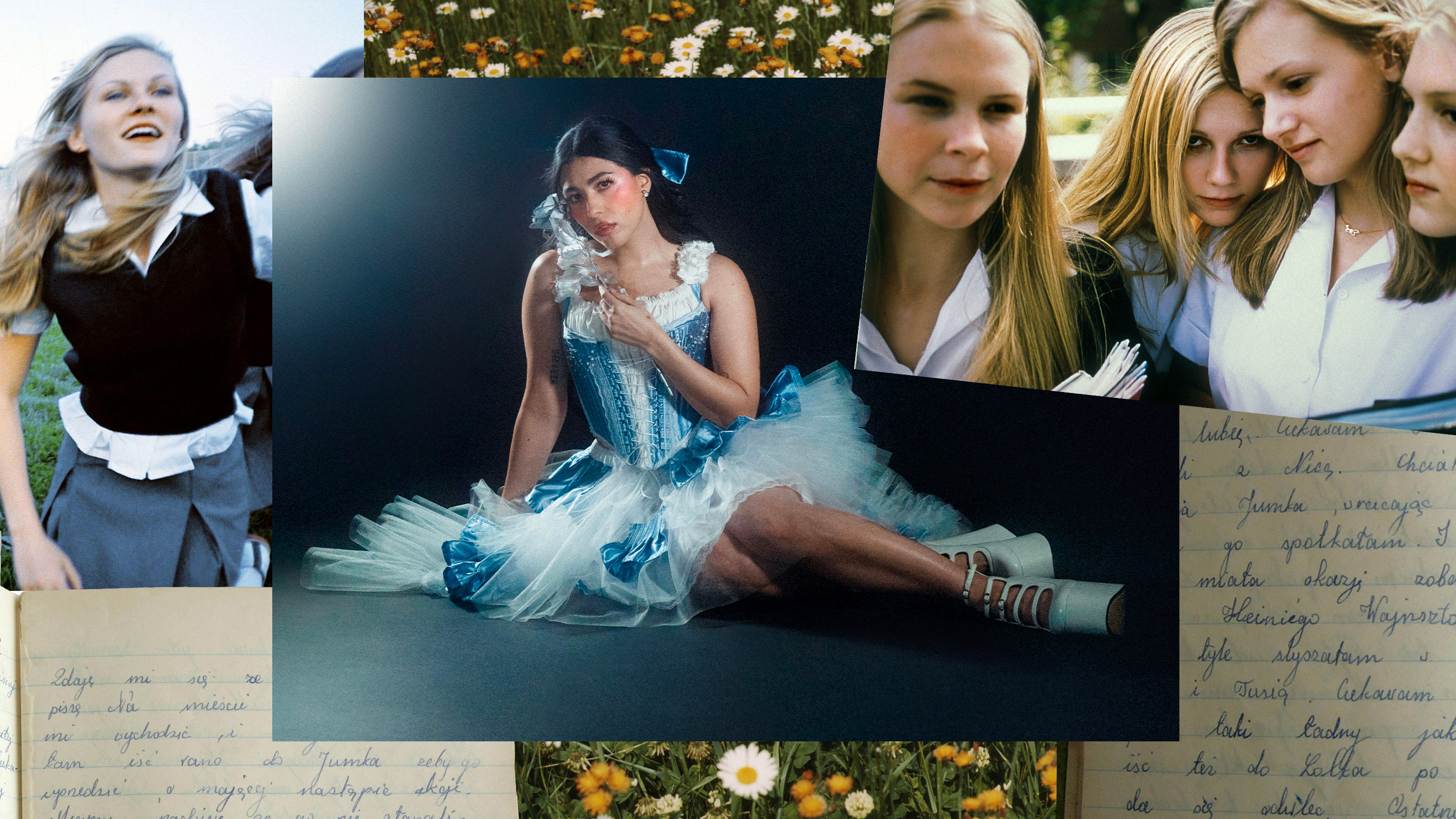
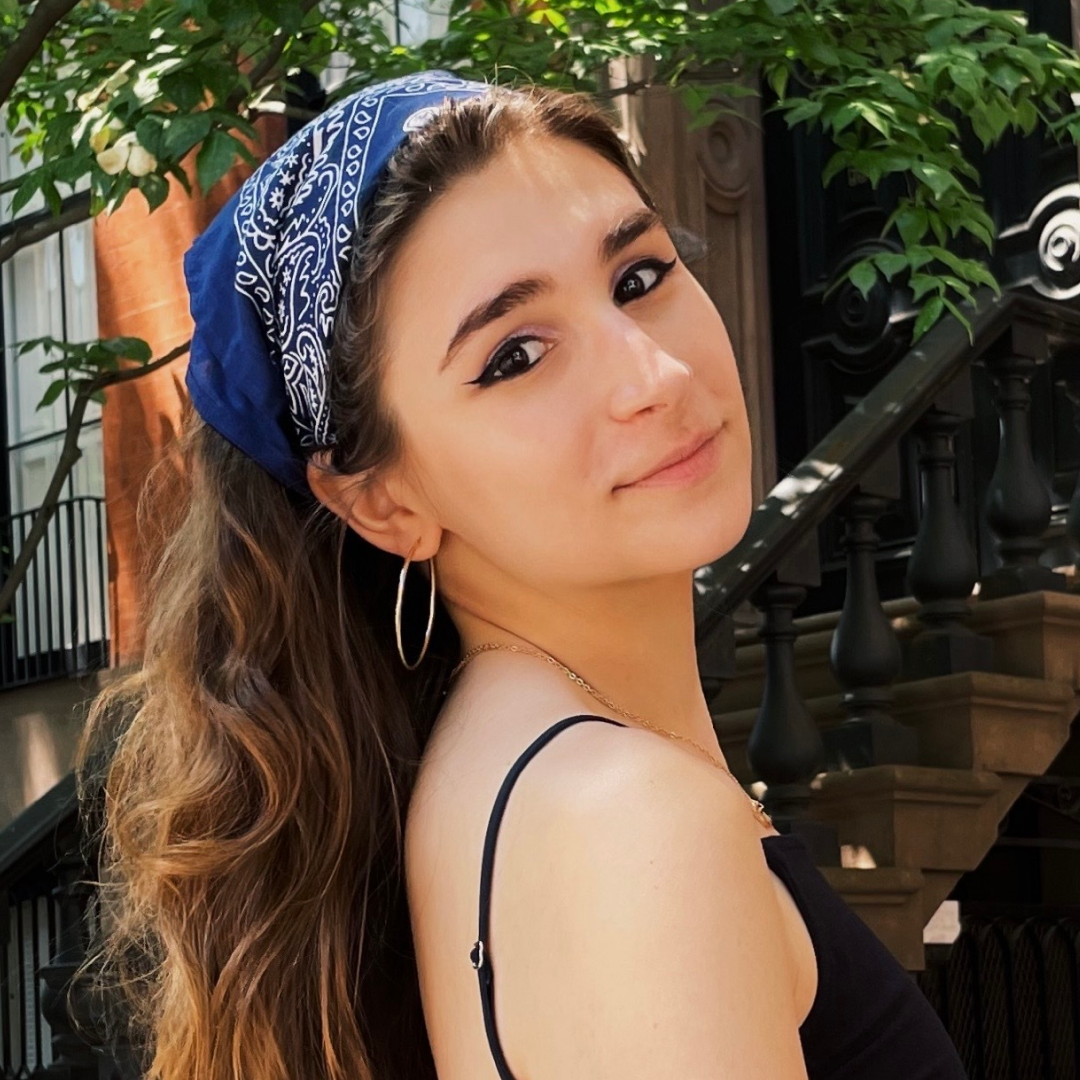
This article contains references to suicide. For support, please contact the 988 Suicide and Crisis Lifeline, or visit the National Action Alliance for Suicide Prevention.
Mia Berrin from the indie rock band Pom Pom Squad has long laced her lyrics and visuals with references to Sofia Coppola’s directorial debut, The Virgin Suicides. Her work frequently wrestles with themes of femininity, girlhood, and womanhood, much like the film, and the lead single from her debut album, 2021’s Death of a Cheerleader, was named after Kirsten Dunst’s eponymous character, Lux Lisbon. The song’s music video even replicated some of the drama’s most iconic scenes.
Berrin is one of many artists—from writers like Tavi Gevinson to photographers like Petra Collins to designers like Marc Jacobs—who cite the 2000 film about a family of sisters coming of age in ‘70s suburbia as an influence. So, as the film adapted from Jeffrey Eugenides’s novel of the same name celebrates its 25th anniversary on April 21, the New York area-based musician shared with Marie Claire in an as-told-to interview why it resonated with her and what it means to her now.
I spent a lot of time on Tumblr and watching movies in high school. I had certain movies that I would watch every day, and The Virgin Suicides was one of them. I was 15 or 16 when I first watched it; I remember being in my bedroom at my childhood home in Florida. I had to buy it on the iTunes store—and still have the download to this day—but I watched it all the time.
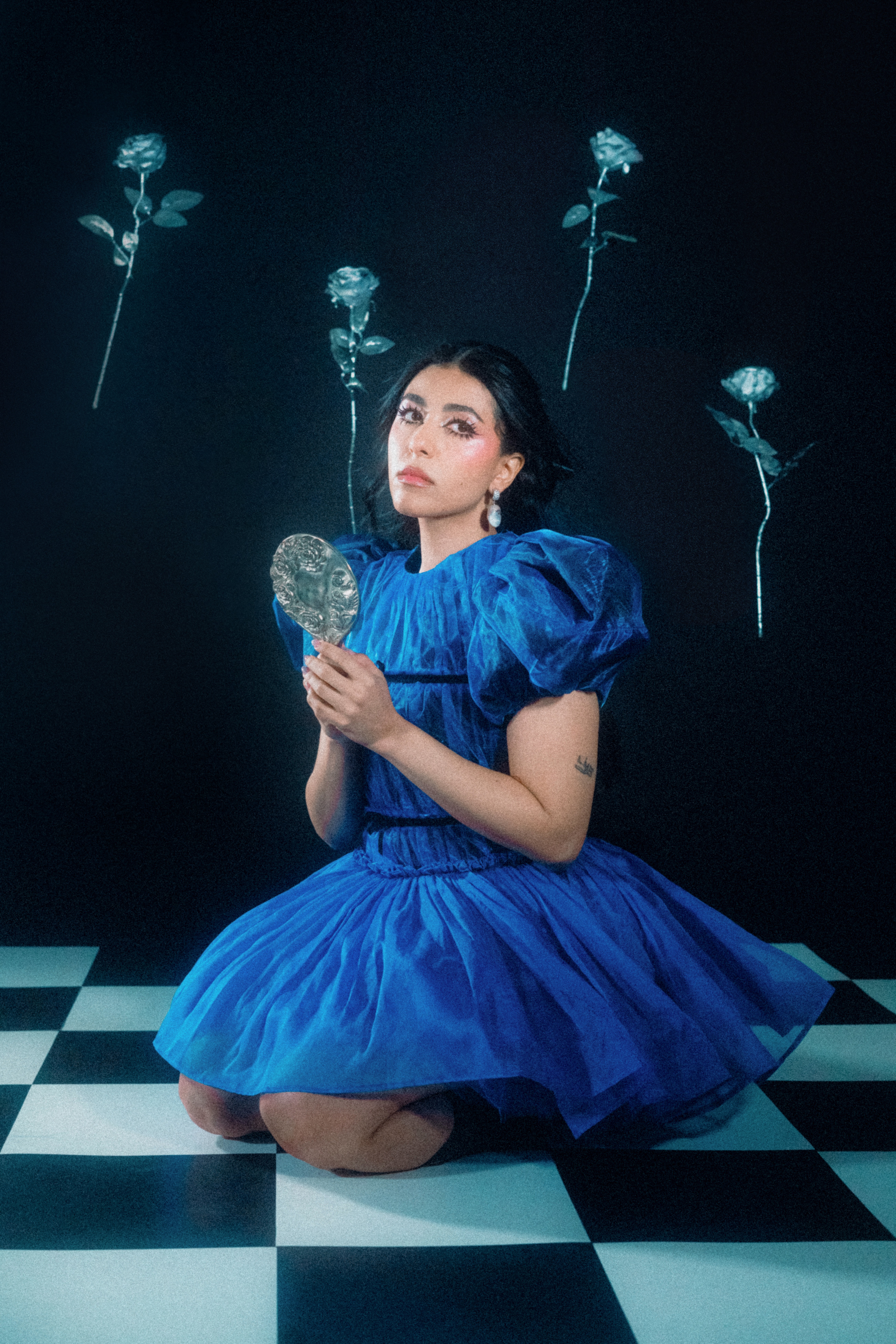
In 2024, Pom Pom Squad's sophomore album Mirror Starts Moving Without Me was released to acclaim.
Tumblr was my introduction to it. I would see cool girls I liked online talk about it, and that’s what sealed the deal from, This is a pretty movie with cool imagery, to, I think this is something I should watch.
At the end of my first viewing, I remember feeling like, “That’s it? That's what everyone's so obsessed with?” I'd never seen a movie like it—that wasn't so straightforward narratively and left you with more questions than answers. But a trend with me and a lot of my favorite art is that I don't like it when I first listen to it or watch it. Another trend with art that sticks with me is that I continue to return to it. I kept asking myself, “Well, what did happen in the scene?” or “What does that represent?” So I just kept watching it, and eventually I loved it.
Initially, I liked how beautiful it was and how beautifully mundane it was. But ultimately, even if I couldn’t relate to the Lisbon girls demographically—I wasn’t a conventionally attractive, thin white girl—I could relate to their feeling of imprisonment. I was in a phase of teenage girlhood when I was going to prep school and didn’t see myself represented in the paths being presented to me. Like, I knew I wasn’t a cheerleader, which is why my moniker, Pom Pom Squad, started—this realization that a feminine ideal existed that I didn’t fit into. So their imprisonment struck me, but not only in their house, the imprisonment of being a teenage girl and living in a body onto which other people projected their fantasies, sexualization, or romantic facades.
Stay In The Know
Get exclusive access to fashion and beauty trends, hot-off-the-press celebrity news, and more.
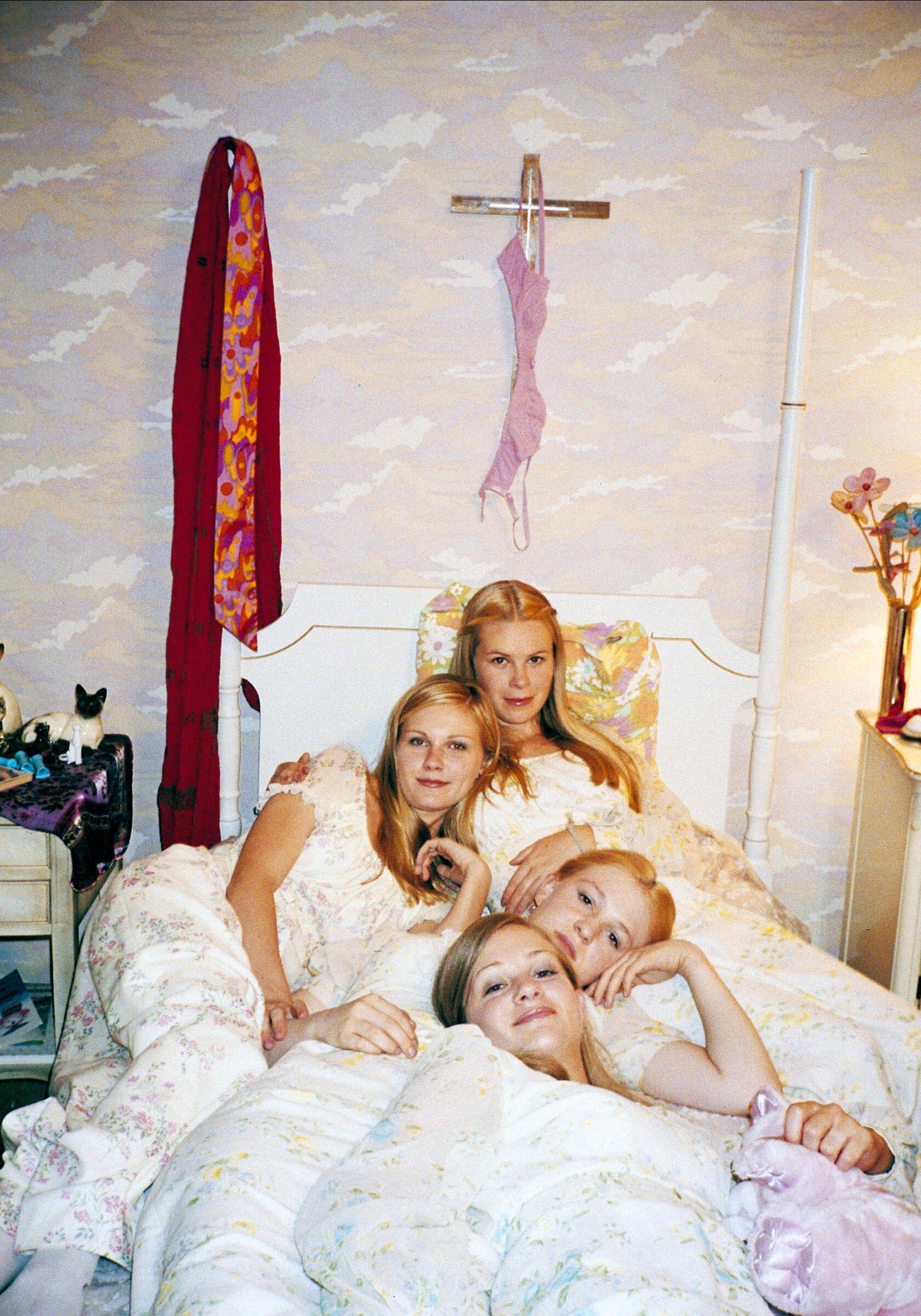
Sofia Coppola's directorial debut premiered at Sundance Film Festival in January 2000 and was released into theaters on April 21, 2000.
I also loved the portrayal of what the girls did to survive by making the world around them beautiful, dressing themselves the way they did, or finding ways to express themselves. That was my first foothold into the story.
I was at a crossroads in my life where I had been bullied out of three schools, and I was really depressed and angry. It got to a point where that angst was so unsustainable, I basically had to decide, Do I still want to be alive? Being a teenage girl is a very loaded thing, and I don't look at it with rosy retrospection, but my best friend at the time and I developed this consciousness where we had to force ourselves to love it in a twisted way. I started seeing everything like a movie—viewing myself almost from the outside as a character and imagining everything was part of a larger story to help me get through the day. Like the Lisbon sisters, I started to decorate my world—its wardrobe, the soundtrack. It made me braver in many ways because I took everything a little less seriously, and I started to view everything around me as an expression of my artistry and the story I wanted to tell. Film, in general, became extremely important, but The Virgin Suicides fostered this realization that there is value in the mundane and emotional weight to being a teenage girl, alone with your thoughts or with your friends or sisters. It unlocked an emotional spectrum for me, showing me there was value in those feelings.
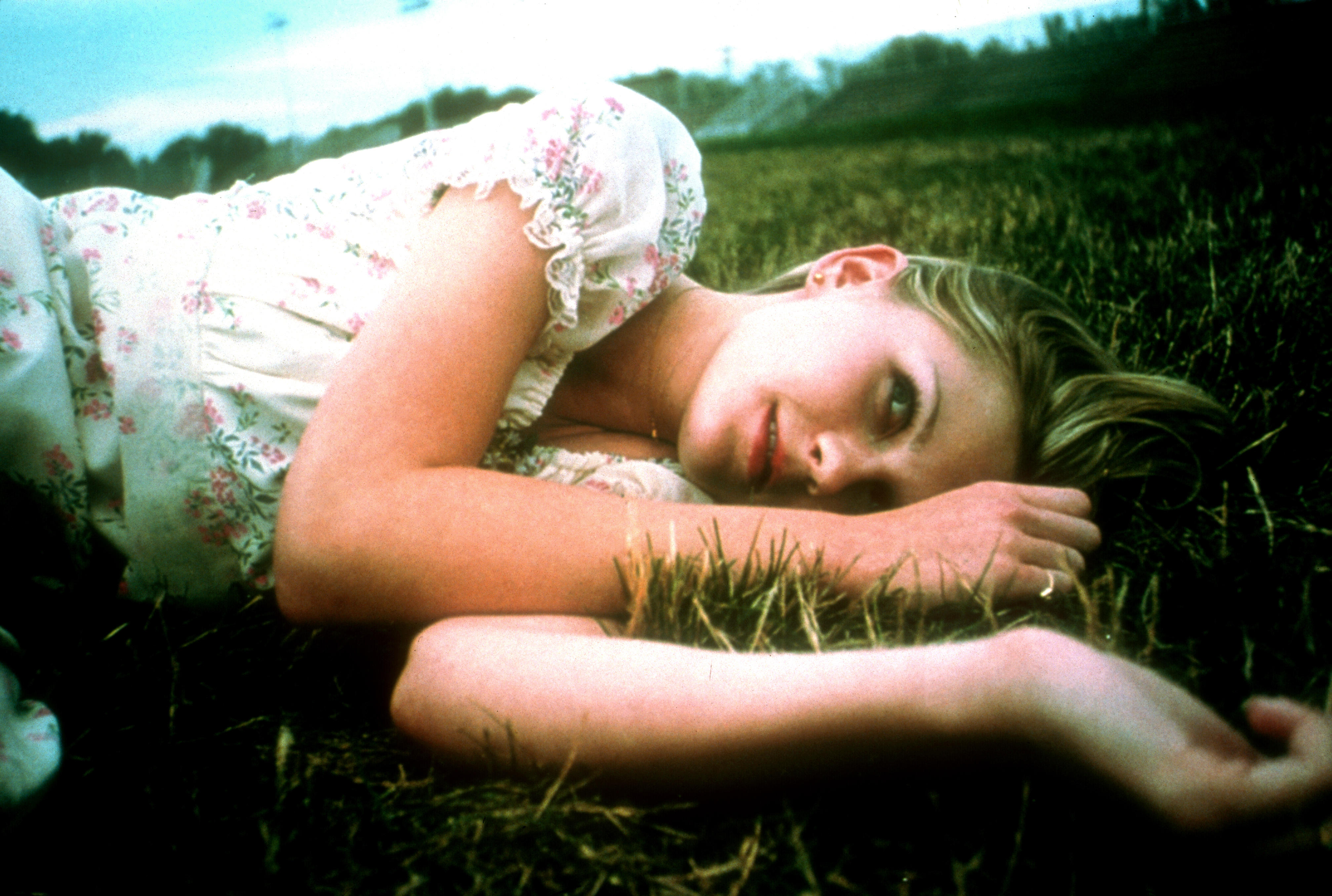
Kirsten Dunst as Lux Lisbon when she wakes up on the football field after Josh Hartnett's character, Trip Fontaine, leaves her.
Eventually, at 17, I wrote my first (good) song as Pom Pom Squad, “Lux.” I wrote it because I had one of my first experiences being sexualized in a way that I felt uncomfortable with. I had a crush on a boy I met at a theater competition, and I was playing out a fairytale teenage romance in my head. What I was met with was a lot of sexual advances that I didn’t want and wasn’t ready for. I remember feeling so angry; I was scared of the way that sexual attention transforms people’s idea of you, and that it had this correlation with disrespect—that suddenly you have less value to someone if they get what they want from you. One of the only proxies I could think of was the scene in The Virgin Suicides when Trip leaves Lux on the football field. I took some of her story, but in a way, she took on some of mine.
“Lux” ended up being my first song released by a label in my early 20s, and the music video was a recreation of The Virgin Suicides. It meant a lot because I studied acting and loved film so much. But it was very emotional seeing my face and body in that role. Growing up, I was the bigger girl, I was brown, and I had big, curly hair. I grew up hearing a lot of racist comments about myself. So I became obsessed with recreating things with my physical body in them because I never thought I would be cast in those roles. Even when I was studying acting in my 20s, I was told I “was not the leading lady,” I “was not going to be the romantic interest,” and someone at New York University told me I “would probably do relatively well for an actress of color.” With “Lux,” it was about having the control to put my body in that space—put myself in the costumes, in the sets, in the scene, and making myself the Lux Lisbon at homecoming—because sometimes I still live in that mindset of the younger version of myself who was told that I was not valuable and nobody wanted to hear from me.
I grew up hearing a lot of racist comments about myself. So I became obsessed with recreating things with my physical body in them because I never thought I would be cast in those roles.
It did feel like a dream come true at the time. However, one of the beautiful things about art and growing up is how your reception of art correlates to where you are in life and who you are in the moment you find it. With The Virgin Suicides, I’ve gotten to spend so much time with it. Even though there’s so much that I relate to about the film, I realize now that there’s so much that I don’t. I did go to a prep school, but I only partially grew up in suburbia because I lived in a bunch of different places, and it’s so different how white teenage girlhood is treated versus non-white teenage girlhood and the value those stories get. For a lot of girls like myself, The Virgin Suicides may have been their first exposure to a certain view of girlhood, and that’s a beautiful place to start. But that’s what I’ve realized as I’ve gotten older: It’s a jumping-off point.

The Jeffrey Eugenides novel on which Coppola's film is based was first published in 1993.
I met Sofia Coppola at an event she was hosting that I was invited to, and I ended up feeling like I was no more than a fan in a line. I didn’t feel like someone who put so much into my relationship with this particular piece of art and these characters. But in my career in recent years, being in rooms with artists whose work I love, more than anything, teaches me that I need to be making rooms, too.
So many pieces of media have been incredibly important to me—referencing older movies and music that make this tapestry of who I am will always be part of my artistry—but it feels nice to have complicated feelings about the things you love, because the older you get, the more complicated your relationships become, especially the longer they’ve lasted. I’m grateful to feel complicated emotions.
Feeling so drawn to but a little disenfranchised from these things that I love has actually served as a really strong motivator to go out and make things myself to fill in the gaps with my body and my face and my experiences. I know I needed the “Lux” video, and I’m so glad I made it. My hope is that someone else needed to see it, too.

Sadie Bell is the Senior Culture Editor at Marie Claire, where she edits, writes, and helps to ideate stories across movies, TV, books, and music, from interviews with talent to pop culture features and trend stories. She has a passion for uplifting rising stars, and a special interest in cult-classic movies, emerging arts scenes, and music. She has over eight years of experience covering pop culture and her byline has appeared in Billboard, Interview Magazine, NYLON, PEOPLE, Rolling Stone, Thrillist and other outlets.
-
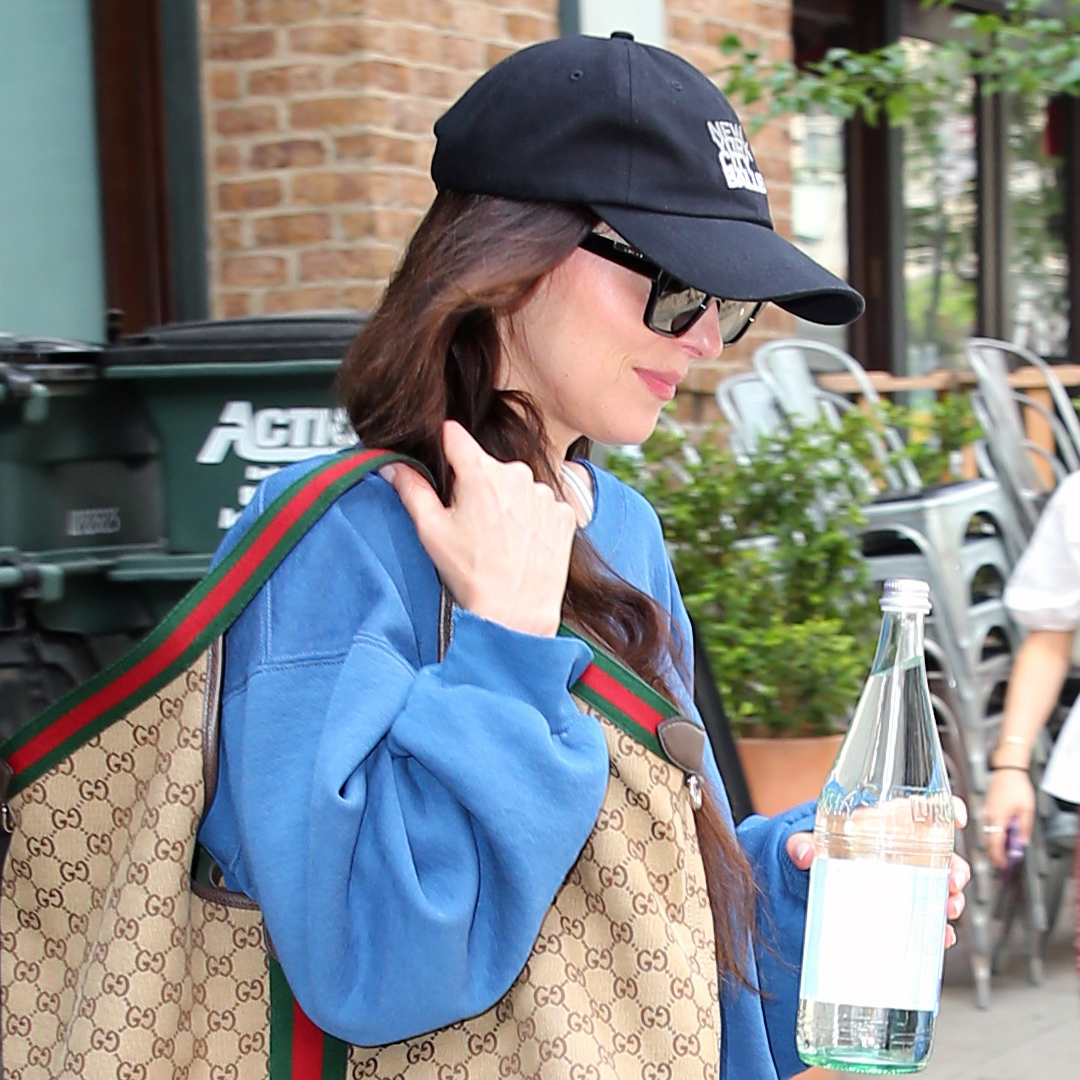 Dakota Johnson Debuts New Nike Sneakers and a Giant Gucci Tote Bag
Dakota Johnson Debuts New Nike Sneakers and a Giant Gucci Tote BagShe's doubling down on both brands.
-
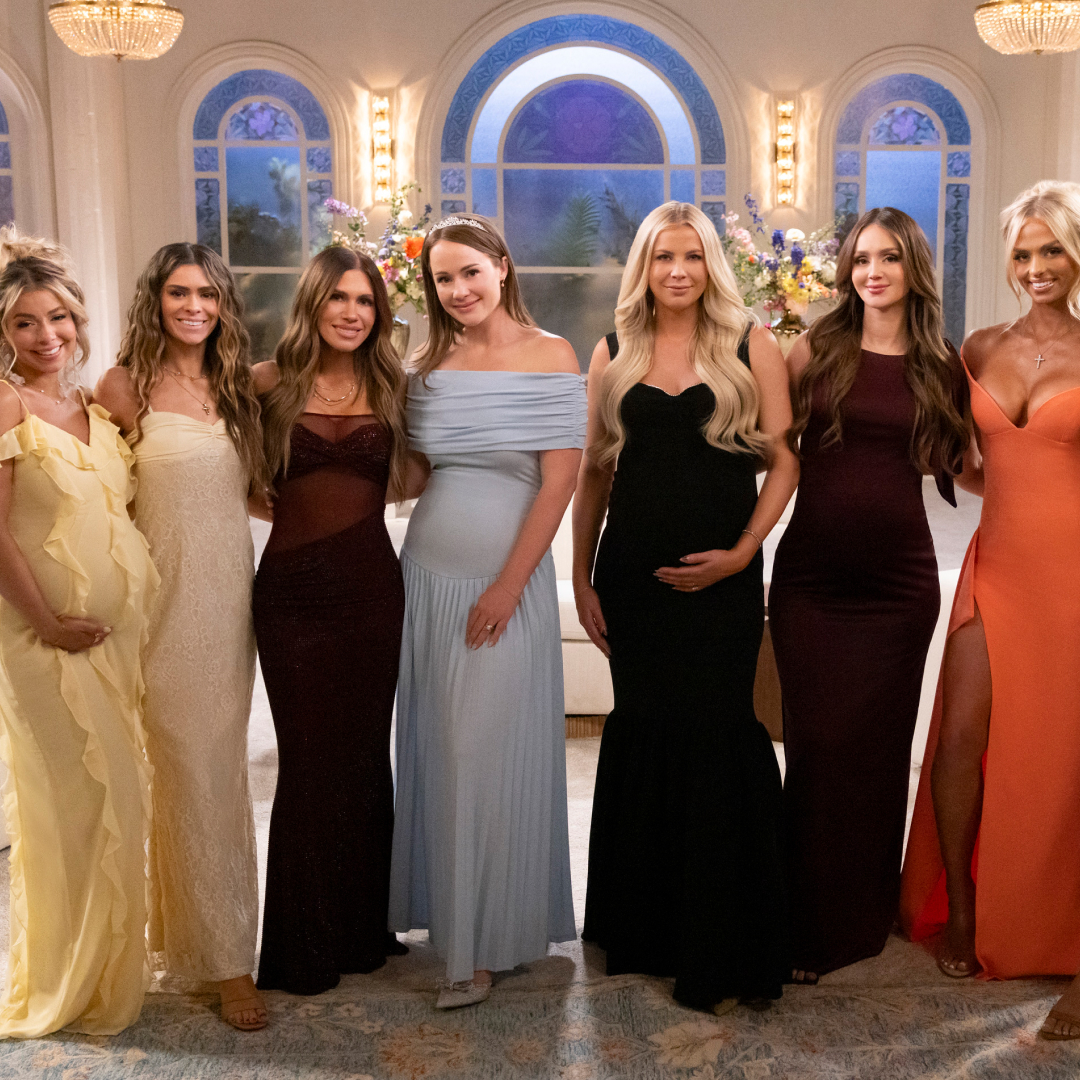 'The Secret Lives of Mormon Wives' Is Getting a Reunion After That Bombshell Finale—But Not All of #MomTok Will Be Back
'The Secret Lives of Mormon Wives' Is Getting a Reunion After That Bombshell Finale—But Not All of #MomTok Will Be BackHere's everything we know about the upcoming special.
-
 Zoë Kravitz Just Introduced Me to My Dream Beach Bag
Zoë Kravitz Just Introduced Me to My Dream Beach BagIf only it wasn't $1,090.
-
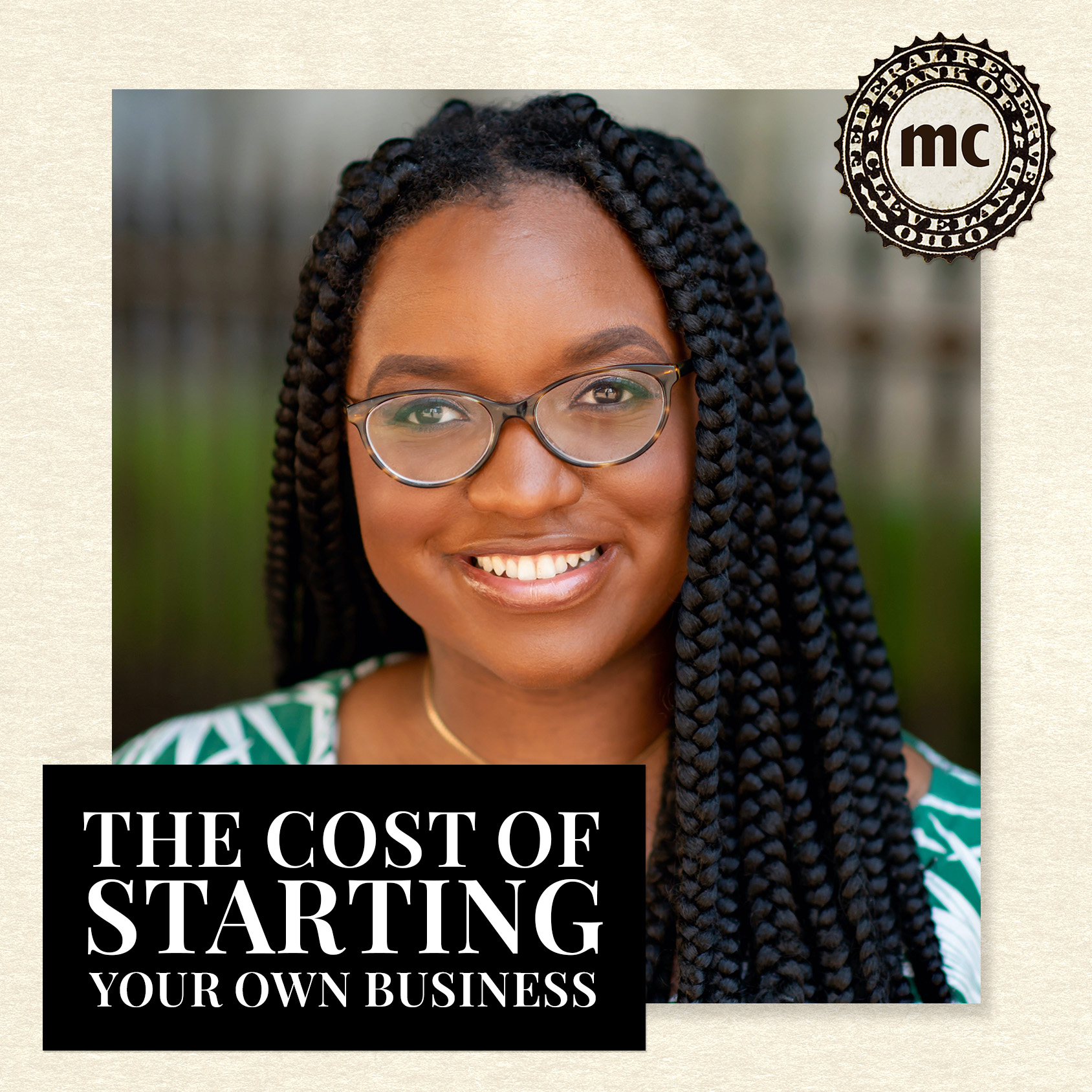 Danielle A. Scruggs Noticed Black Female Directors Were Being Overlooked—She Decided to Change That
Danielle A. Scruggs Noticed Black Female Directors Were Being Overlooked—She Decided to Change ThatHer passion project and digital library, Black Women Directors, uplifts women and nonbinary filmmakers.
-
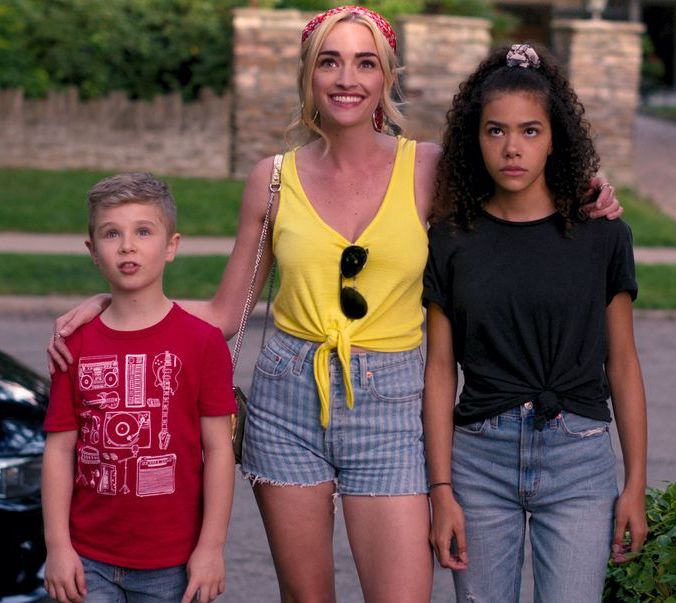 The Cast of 'Ginny and Georgia' Season 3: Your Guide
The Cast of 'Ginny and Georgia' Season 3: Your GuideNetflix's hit small-town drama is full of characters with skeletons in their closets.
-
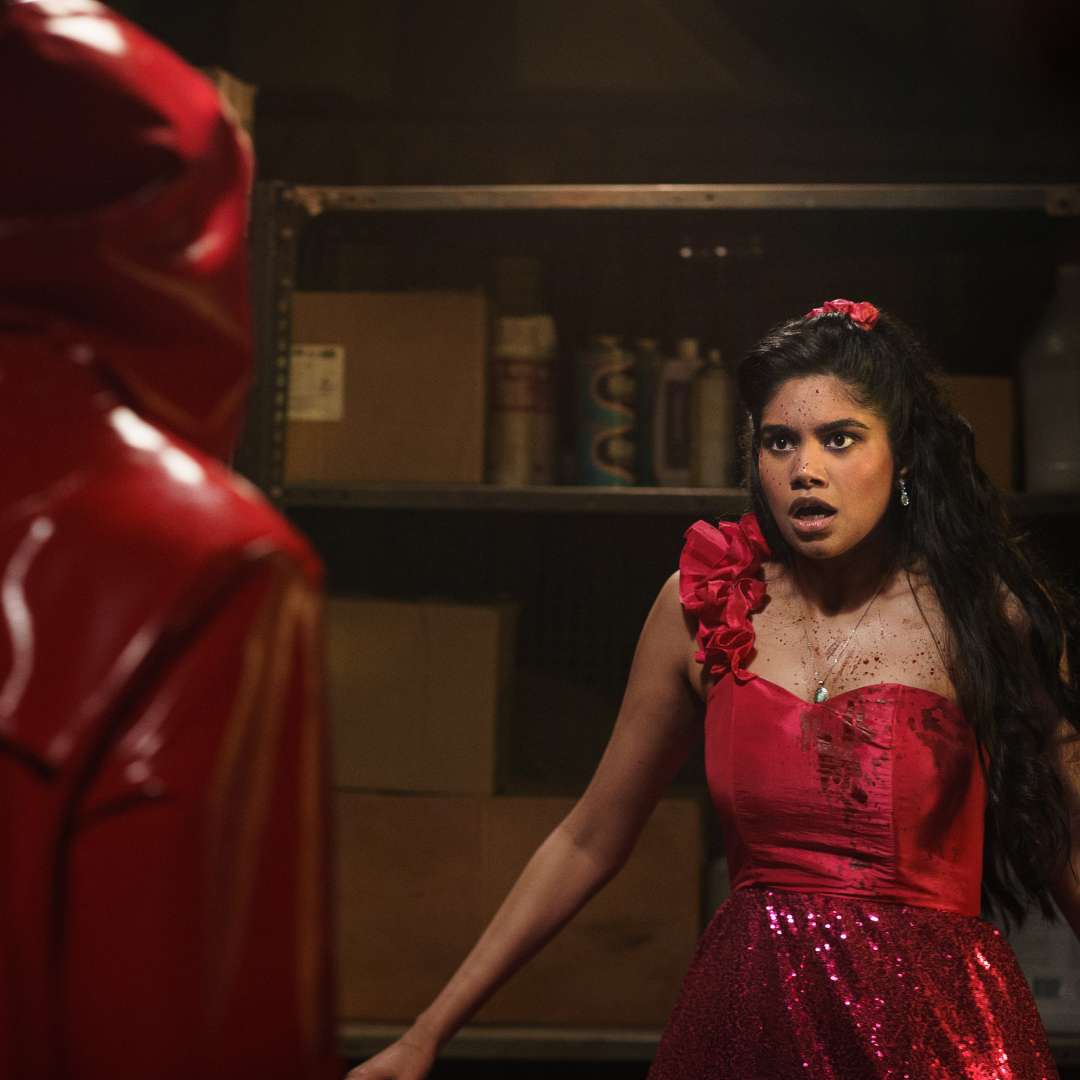 The Cast of 'Fear Street: Prom Queen' Plays 'How Well Do You Know Your Co-Star?'
The Cast of 'Fear Street: Prom Queen' Plays 'How Well Do You Know Your Co-Star?'Ariana Greenblatt, Rebecca Ablack, and Ella Rubin joined us for a game of, 'How Well Do You Know Your Co-Star?'
-
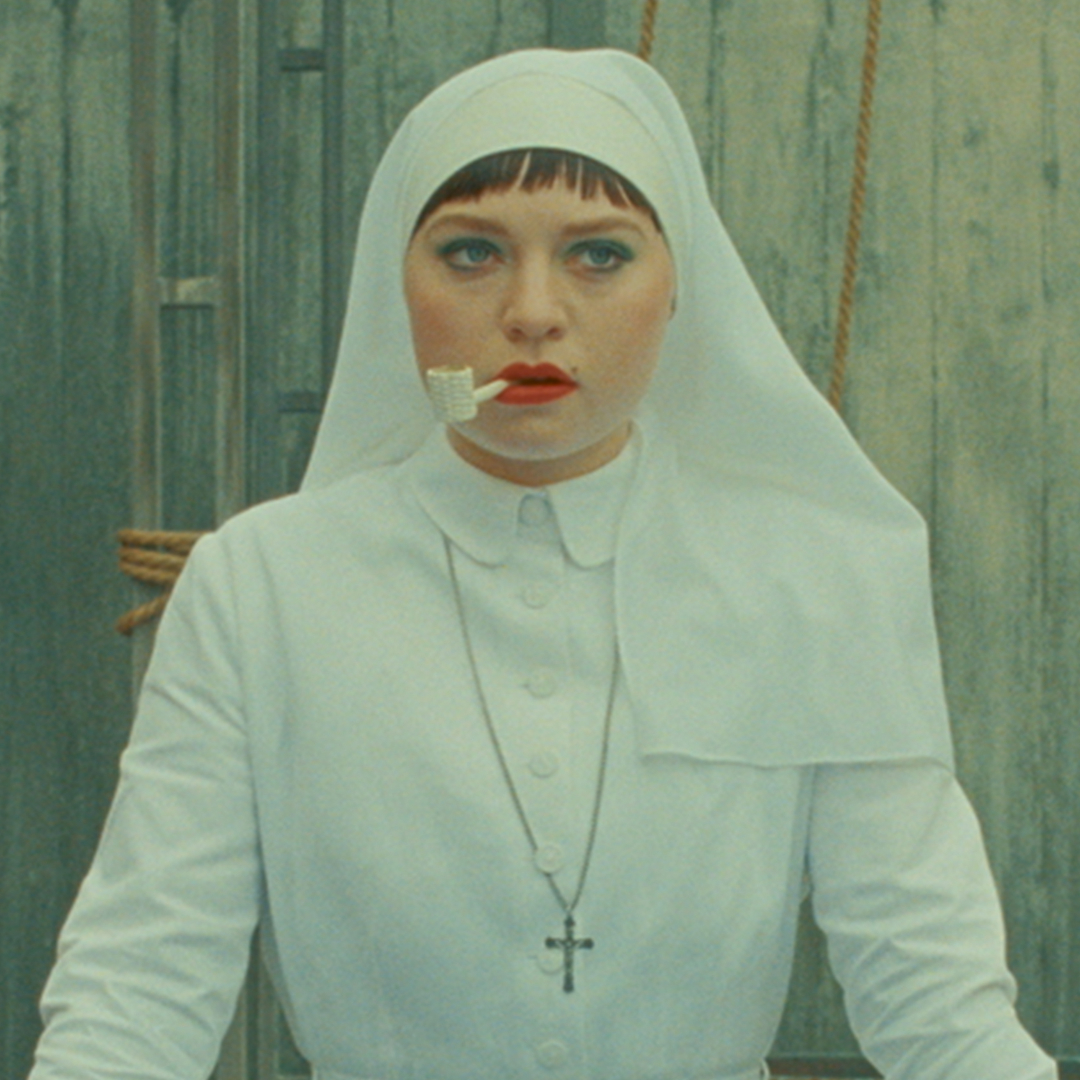 Mia Threapleton May Play a Nun in 'The Phoenician Scheme,' But Her Makeup Evokes Earthly Delights
Mia Threapleton May Play a Nun in 'The Phoenician Scheme,' But Her Makeup Evokes Earthly DelightsHeike Merker, the makeup designer on the new Wes Anderson film, breaks down Liesl's eyeshadow and lipstick.
-
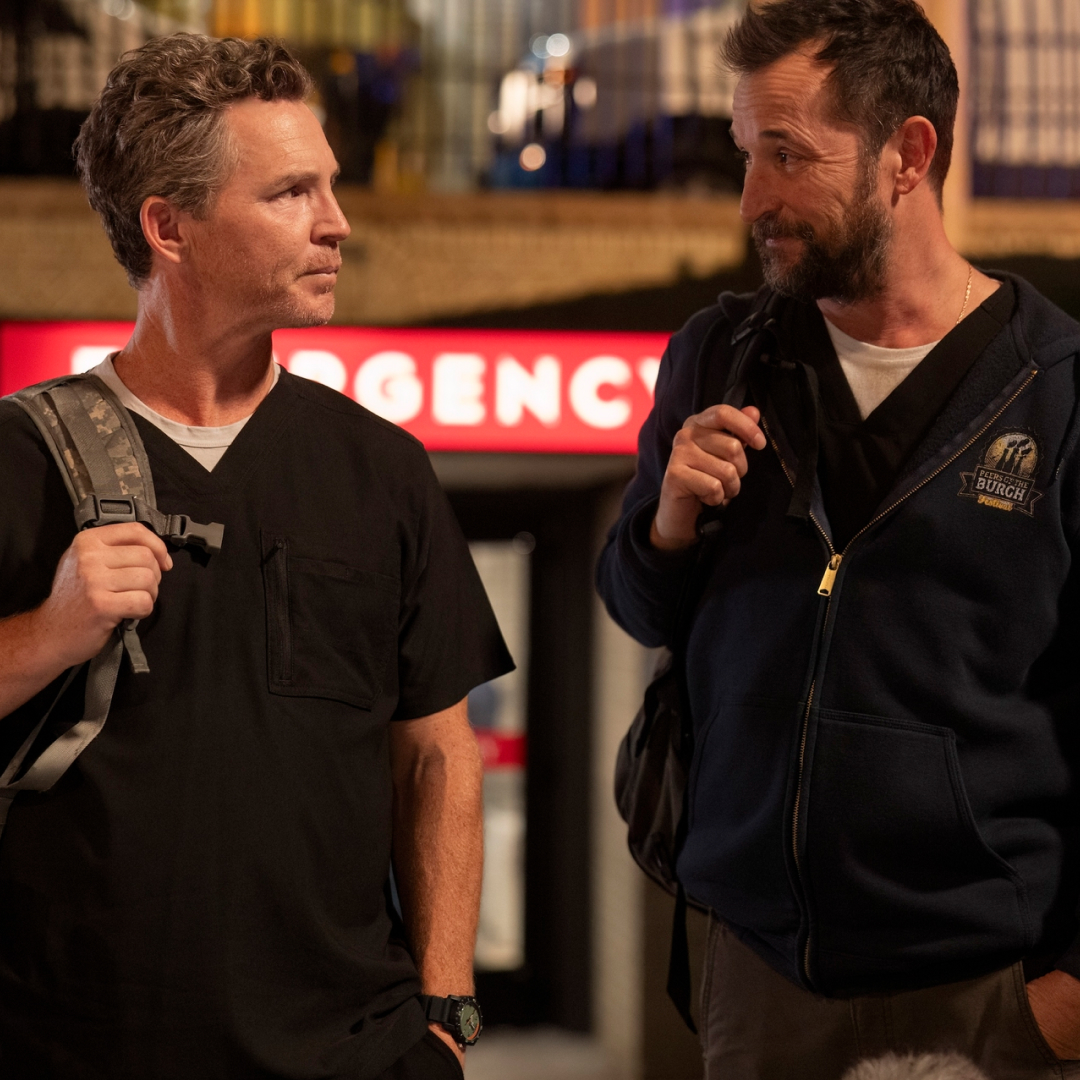 The 15 Best Medical Shows to Watch Right Now
The 15 Best Medical Shows to Watch Right NowThey'll fill 'The Pitt' shaped hole in your heart.
-
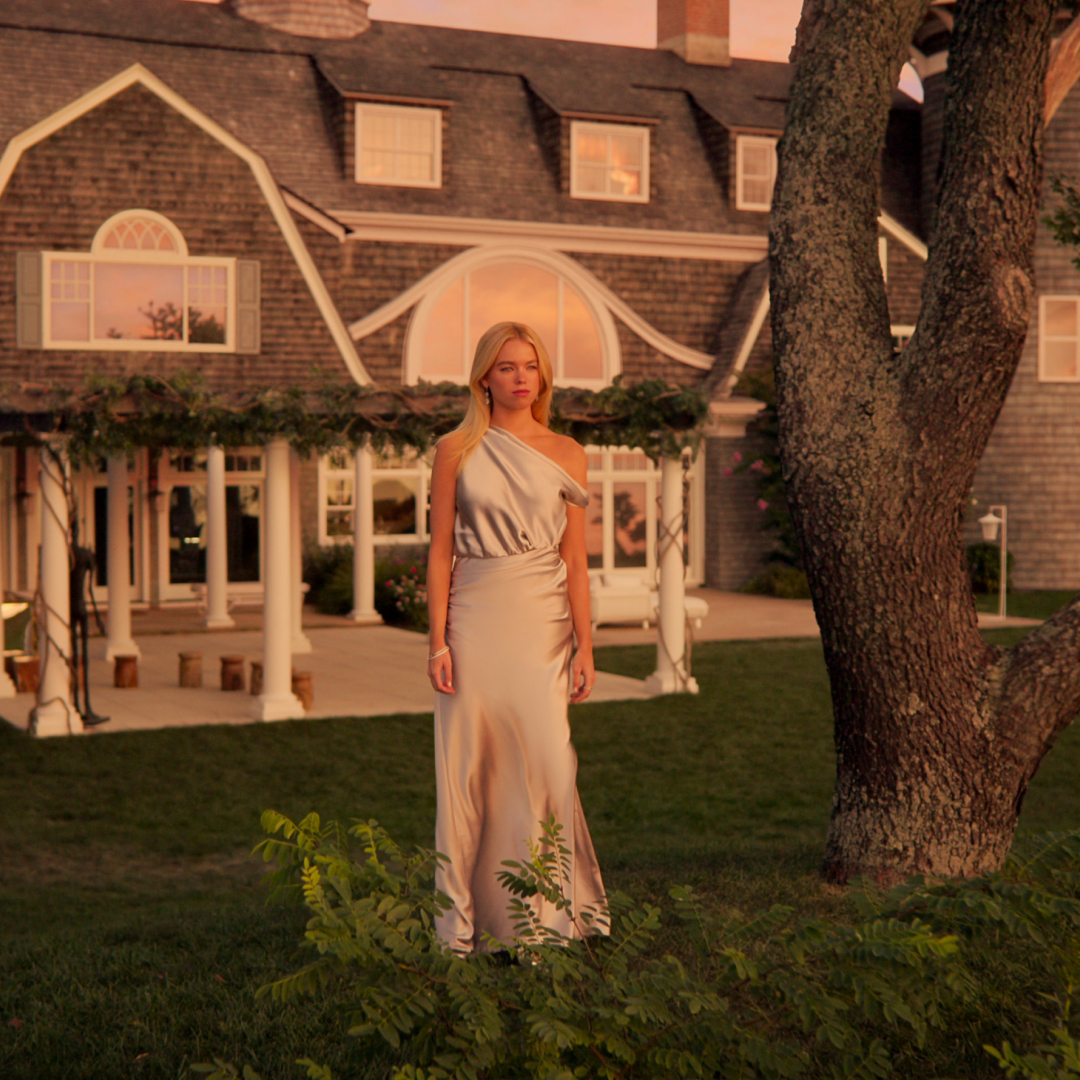 Where Was 'Sirens' Filmed? All About the Long Island Locations Transformed Into Port Haven
Where Was 'Sirens' Filmed? All About the Long Island Locations Transformed Into Port HavenHere's where the Netflix miniseries starring Julianne Moore and Meghann Fahy was filmed.
-
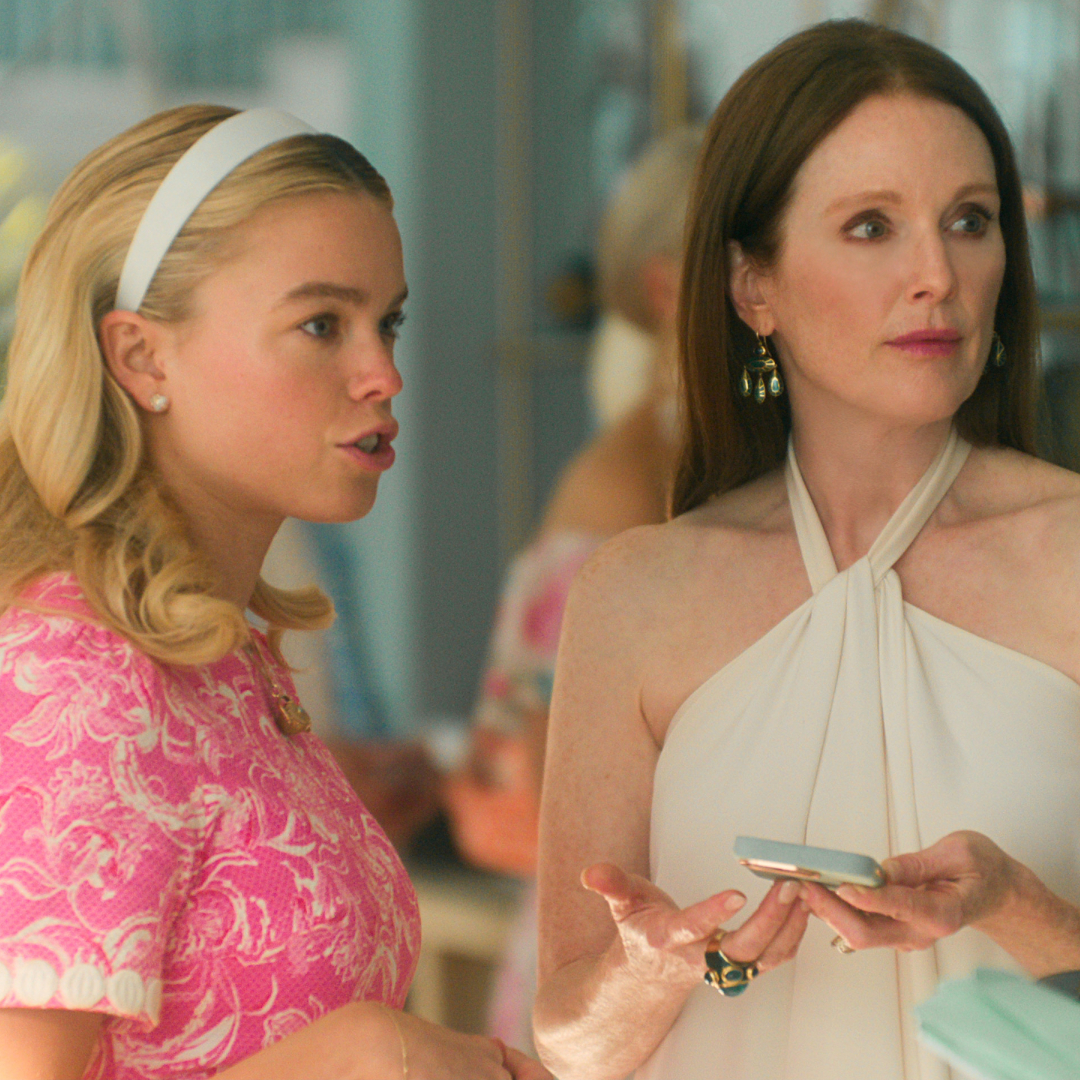 'Sirens' Ending, Explained: Breaking Down the Shocking Finale
'Sirens' Ending, Explained: Breaking Down the Shocking FinaleThe Netflix miniseries explores the lengths we go to for power...and leaves us with questions.
-
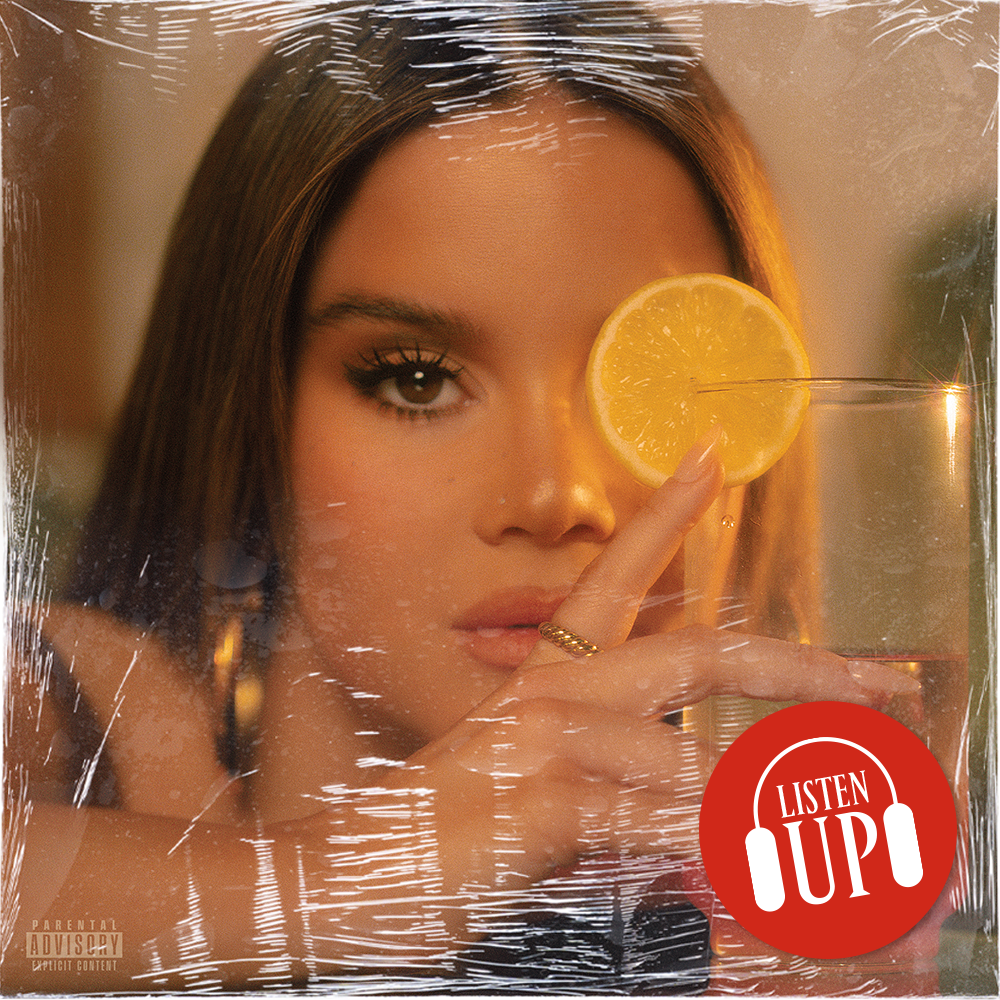 Maren Morris Shares What Music Shaped Her—and What's on Her Playlist Now
Maren Morris Shares What Music Shaped Her—and What's on Her Playlist NowWith her album 'D R E A M S I C L E' out now, the singer opens up about her musical preferences for the 'Marie Claire' series "Listen Up."
